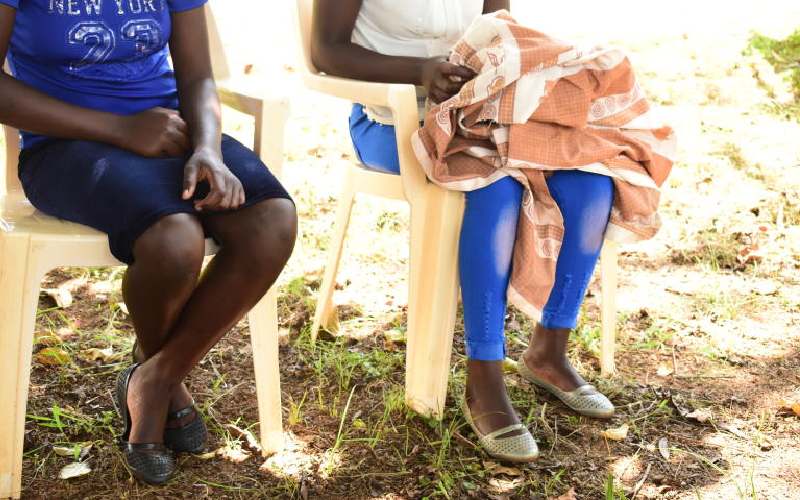×
The Standard e-Paper
Home To Bold Columnists

Two sisters who were raped by their father in a period of four months.[Mumo Munuve,Standard]
Last month, a man in Limuru gave two schoolgirls a lift. They got in, probably pleased that they would reach their destination faster, and more conveniently. After dropping one of them, he drove to a bush and raped the other. Instead of dropping her at her destination, he dropped her into lifelong agony. He brutalised her and violated her human dignity.